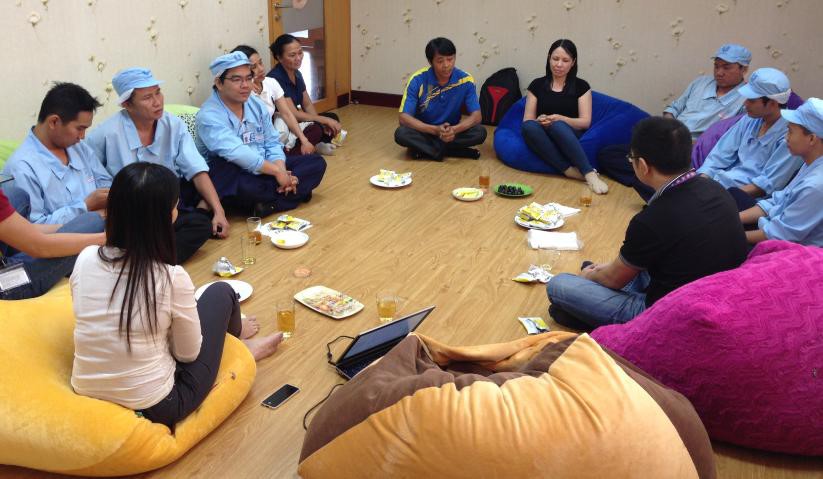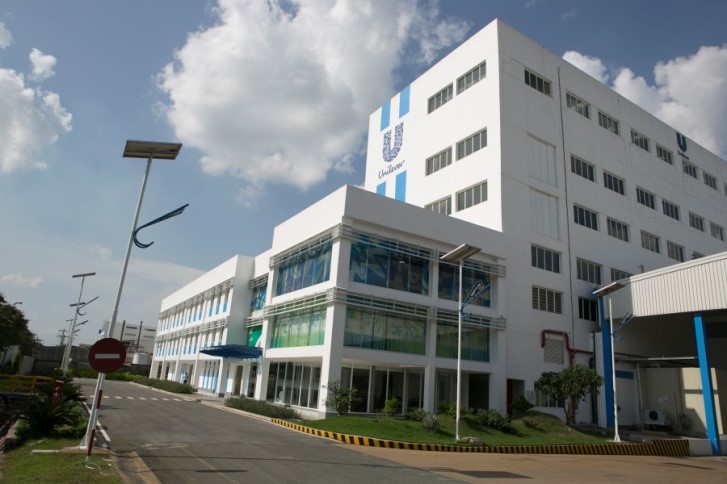Oxfam’s Rachel Wilshaw reveals how doing a study of the company's labour standards was an eye-opener for both parties
Oxfam works with a number of big private companies, but our relationship with one (very large) company intrigues people more than any other. The relationship between Oxfam and Unilever began 15 years ago, with a joint Poverty Footprint study in Indonesia, which led to collaborative work on sustainable agriculture. Unilever was also one of the 10 global food and beverage companies targeted by our Behind the Brands campaign to drive a race to the top on agricultural supply chain standards.
Discussions with the company on labour rights began in 2009, following public reports highlighting a range of labour issues at the company and focused on precarious work, wages below a living wage and weak worker representation. To give the dialogue a practical grounding, the parties agreed to do a study looking at the gap between corporate policies and the reality for workers in one country, and chose Vietnam. As Unilever had just signed up to the UN Framework on Business and Human Rights, the Guiding Principles were used as a framework. To maintain our independence, Oxfam asked that the study design, funding and report authorship sit with us. This enabled us, for instance, to conduct worker interviews on and off-site, something companies don’t typically allow but which in Oxfam’s experience yields far more information.
The initial report, published in 2013, uncovered a range of concerns, not only in the supply chain, but in Unilever’s own factory in Ho Chi Minh city. This acted as a something of a wake-up call and prompted a range of CEO-level commitments, including one to undertake a “sustainable living review” in all 180 countries in which it operated. For its part, Oxfam welcomed Unilever’s willingness to open up its business to NGO scrutiny and contextualised the findings as being systemic in global supply chains.
In 2015 we went back to Vietnam to see what had changed and why since the first study, and published a follow-up report. A blog with key findings is here. The first thing the research team noticed was the much greater openness by Unilever managers to listen to the factory workers’ concerns, and the efforts made to strengthen grievance mechanisms. There were more tangible changes too: a higher proportion of workers were directly employed (previously more than half the workforce was employed by a third party), and wages had increased: 48% in real terms for a semi-skilled worker. Suppliers were also found to be much more aware of Unilever’s expectations on labour standards.

Monthly chat with management sessions for workers, introduced after the first Oxfam report (credit: Unilever Vietnam)
But the report also identified three big challenges. First, there was an unresolved tension between Unilever’s responsible sourcing code and the commercial and labour requirements of suppliers, with
the expectation of low prices and fast turnaround times tending to push overtime up and wages down. Second, although wages had gone up, the main reason was the sustained increase in the legal minimum wage and some workers still reported struggling to make ends meet. Third, the shift to direct contracts actually reduced the number of jobs for women in its operations, something Unilever was not aware of, and a real case of unintended consequences from Oxfam’s perspective.
We concluded that it was time that MNCs such as Unilever look more at the system, and less at the suppliers. For as Unilever itself acknowledges in its human rights report, systemic issues such as child labour, slavery and gender-based violence, as well as the labour issues, “are determined by political, social and economic factors that affect entire sectors”.
Oxfam’s experience of engaging with Unilever
A number of factors helped make the engagement a successful one. One was the constellation of challenges Unilever was facing, from resolving the labour disputes to the need to gear up to address human rights in a credible way. A range of managers demonstrated leadership, but it helped that they had the explicit backing of a CEO who firmly believes that “we have to work with government and civil society”. Mutual respect and relationships of trust at a range of levels within each organisation were also vital.

Unilever's factory near Ho Chi Minh city, Vietnam (credit: Unilever Vietnam)
At UK level, the ‘critical friend’ engagement was fairly straightforward: discussions were constructive and could occasionally be challenging, as circumstances required. In Vietnam, the local staff had never engaged with an NGO before and, perhaps unsurprisingly given the country’s history and culture, were defensive, even though we did our best to contextualise findings in a SWOT (strengths, weaknesses, opportunities and threats) format.
When we did the follow-up study, we were again impressed at the company’s openness to Oxfam’s feedback, including a willingness to allow us to run a workshop for its most strategic suppliers without Unilever personnel present, and a readiness to fly the entire global procurement team in from Singapore to hear the initial findings. That day the Oxfam team spent nine hours talking intensively to 20-30 Unilever staff about difficult labour rights issues, a first for our engagement with any company.
When the second report was published in July 2016, Oxfam would like the company to have done more to communicate the findings proactively. Unilever did acknowledge in a blog that there were “issues that needed fixing at three levels - overall global policy and business practices, specific findings in our own Vietnam operations, as well as issues that Oxfam was focused on such as living wage and freedom of association’, but a public comment by Unilever could have sparked more media interest and enabled the learnings to reach a wider audience.
What is clear is that Unilever has not suffered from disclosure of systemic issues in its chain. If anything, the more negative findings seemed to get a bit lost in the positive publicity Unilever achieved by being transparent.
What’s in it for Unilever?
Liesbeth Unger, a labour rights specialist who helped design the first study reflected in a blog on why the company agreed to the study. ‘What Unilever is doing benefits them on two counts. Firstly, it confirms their leadership, not so much in performance on human rights but in transparency and willingness to learn. Secondly, it improves Unilever's risk management. Not only by preventing human rights risks but by improving its understanding of how an important stakeholder such as Oxfam looks at these issues. Despite Unilever's improved risk management on human rights, Oxfam's assessment identifies risks Unilever didn't know it had.”

Oxfam’s main takeaway was the importance of a company like Unilever influencing the wider system, and its potential as an ally in this. Interviewed by Oxfam’s Duncan Green for his new book “How change happens”, CEO Paul Polman stated that “responsible companies often want regulation to be put in place. The notion that we’re against regulation is just not true. We want it to get over the freerider problem, but … it’s got to be the right regulation”.
A real game-changer would be for a critical mass of companies to speak up for smart regulation, whether that relates to the enforcement of labour law in emerging economies, or regulation about the beneficial purpose and structure of companies. Now that is something Oxfam would really get behind.
Rachel Wilshaw is the ethical trade manager in the private sector team of Oxfam GB's campaigns, policy and influencing team

